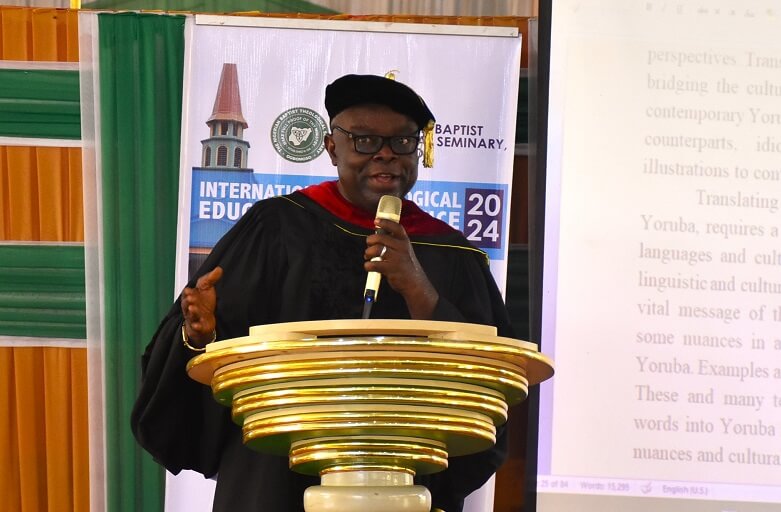
It was a significant epoch on Thursday, March 7 2024 at the Multi-Purpose Hall of the Nigerian Baptist Theological Seminary, Ogbomoso as the first Professor of Biblical Studies in the Institution presented his Inaugural lecture, being the fourth in the history of the Seminary. The Professor of Biblical Studies, Professor Olusayo Bosun Oladejo, avowed that the tendency to rely on English versions of the Bible as source texts rather than the original languages of Hebrew, Aramaic and Greek has further compounded the influences of colonial legacies and Western theological biases on translation of the Bible in Africa.
Insightfully, through his lecture titled “Global God and Local Languages: Decolonizing Bible Translation for Africa” Professor Oladejo clarified the connection between a global God and the diversity of human languages, examined the critical importance of decolonizing Bible translation to address Africa’s unique needs and cultural nuances, traced the historical background of Bible translation, examined the impact of colonization on translation process, and underscored the enduring need to reclaim and revitalize indigenous languages in biblical translation and interpretation.
Generally, in Professor Oladejo’s words, “Translators must be attentive to each term’s contextual nuances, cultural connotations, and theological implications to ensure accurate and meaningful communication.” Meanwhile he specifically focused on examples which highlight the challenges and rewards of translating Hebrew words into Yoruba and accordingly drew out the following strategies to safeguard accurate and culturally suitable translations. The first is to engage in a thorough contextual analysis of each Hebrew word to grasp its multifaceted meaning and application within a specific passage. The second strategy is to seek guidance from Yoruba specialists, proficient speakers, and linguists to ensure that the translation accurately conveys the intended connotation and cultural context. The third strategy is to identify Yoruba words or phrases that closely align with Hebrew concepts regarding cultural significance, even if they lack clear linguistic equivalents. And finally, the fourth is for translators to maintain consistency and guarantee the uniformity of translating repeated Hebrew phrases and concepts to preserve clarity and coherence.
This fourth inaugural lecture of the seminary was well viewed and attended both online and onsite by colleagues, students, friends and family of the Inaugural lecturer.
Professor Oladejo bagged his Bachelor of Theology degree from the Nigerian Baptist Theological Seminary Ogbomoso in 1992 after he earned a Bachelor of Arts in Education at the University of Ilorin in 1988. Furthermore, he had Master of Arts degree in Old Testament Studies from the University of Ibadan in 1999 and Doctor of Philosophy degree in Old Testament Language and Literature from the Nigerian Baptist Theological Seminary in 2007. Prof Oladejo has been a seasoned scholar with over three decades of distinguished contributions to scholarship through teaching, research and publications in the Department of Biblical Studies.
To watch the lecture, click here.
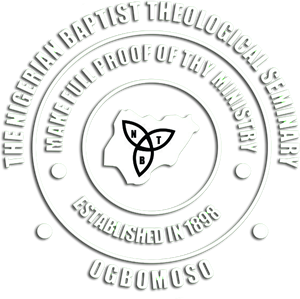
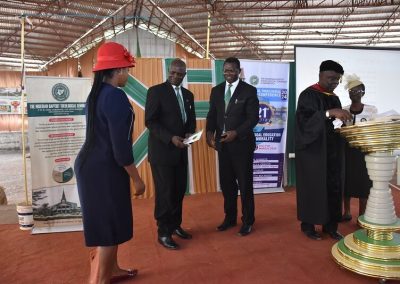
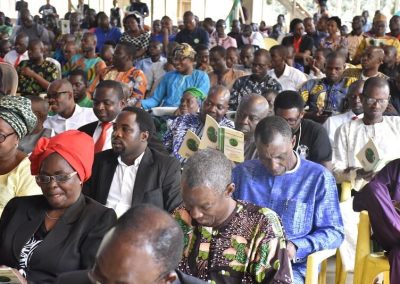
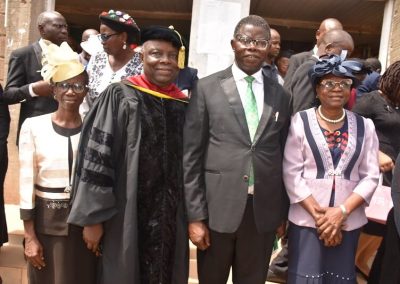
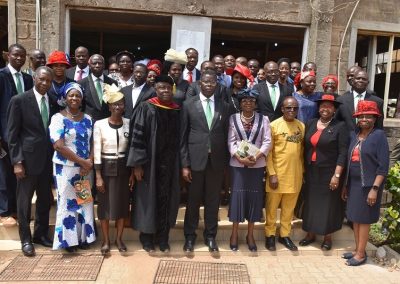
0 Comments